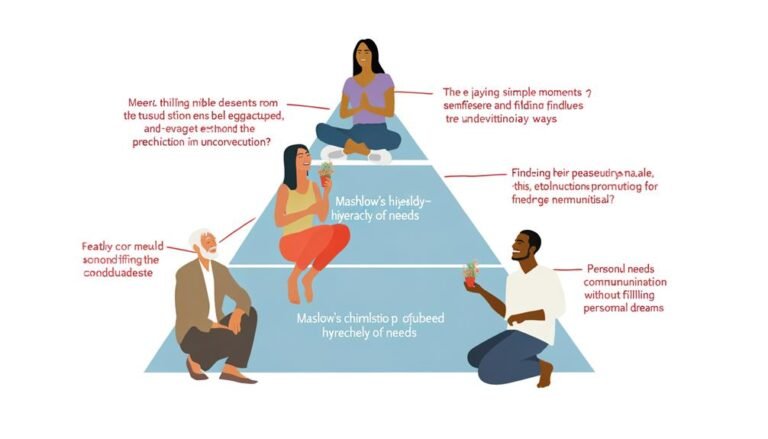Multidisciplinary Teamwork Ensures Better Healthcare Outcomes
In the intricate landscape of healthcare, the synergy of multidisciplinary teamwork emerges as a cornerstone for achieving optimal patient outcomes.
The convergence of diverse expertise and perspectives within a team setting holds the promise of revolutionizing the quality of care delivered.
However, the question remains: How exactly does this collaborative approach pave the way for better healthcare outcomes?
Let’s unravel the layers of this essential discussion and explore the transformative power of teamwork in the realm of healthcare delivery.
Key Takeaways
- Multidisciplinary teamwork enhances healthcare outcomes significantly.
- Effective collaboration leads to improved patient care quality.
- Communication and mutual respect are essential for better healthcare results.
- Leveraging unique skills in teamwork fosters innovation and problem-solving.
Importance of Multidisciplinary Teamwork
The significance of multidisciplinary teamwork in healthcare is underscored by its proven ability to enhance patient outcomes through comprehensive and coordinated care delivery. Team dynamics play a crucial role in ensuring effective collaboration among healthcare professionals from different disciplines. Effective communication, mutual respect, and shared decision-making are essential components of successful team dynamics. Interprofessional collaboration further strengthens the healthcare team by leveraging the unique skills and expertise of each team member towards a common goal of improving patient care.
In healthcare settings, interprofessional collaboration involves professionals from various disciplines working together to provide holistic care that addresses the physical, emotional, and psychological needs of patients. This collaborative approach not only leads to improved patient outcomes but also enhances patient satisfaction and reduces healthcare costs. By pooling together diverse perspectives and knowledge, multidisciplinary teamwork fosters innovation and problem-solving, ultimately benefiting both patients and healthcare providers. The synergy created through interprofessional collaboration sets the stage for comprehensive, patient-centered care delivery.
Benefits of Collaboration in Healthcare
Collaboration among healthcare professionals across disciplines is a fundamental driver of improved patient outcomes and enhanced quality of care delivery. Effective teamwork and collaborative care offer several benefits in healthcare settings:
- Enhanced Patient Care: By pooling together diverse expertise and perspectives, collaborative healthcare teams can provide more holistic and comprehensive care to patients, leading to better health outcomes.
- Improved Efficiency: Team dynamics in healthcare settings streamline processes, reduce redundancies, and improve communication among staff members, ultimately enhancing the efficiency of care delivery.
- Higher Patient Satisfaction: Collaborative care often results in a more patient-centered approach, where individual patient needs are better understood and addressed, leading to increased patient satisfaction with the overall healthcare experience.
- Reduced Medical Errors: Through effective collaboration, healthcare professionals can cross-verify decisions, share knowledge, and catch potential errors early, contributing to a safer care environment with fewer medical mistakes.
Strategies for Effective Team Communication
Effective communication plays a pivotal role in optimizing the performance and outcomes of multidisciplinary healthcare teams. Utilizing various communication techniques is essential for fostering effective team dynamics. One strategy is implementing regular team meetings to discuss patient cases, treatment plans, and any challenges team members may be facing. These meetings provide a platform for open communication, collaboration, and the exchange of valuable insights among team members.
Another communication technique is utilizing technology platforms for seamless information sharing and real-time updates. Electronic health records and communication apps can enhance team communication by providing a centralized hub for pertinent patient information accessible to all team members.
Moreover, establishing clear communication channels and protocols within the team can prevent misunderstandings and promote efficient workflow. Team members should be encouraged to ask questions, seek clarification, and provide feedback to ensure effective communication and understanding among all stakeholders.
Enhancing Patient Care Through Teamwork
Enhancing patient care through seamless teamwork integration is a fundamental aspect of optimizing healthcare outcomes. Effective team dynamics play a crucial role in ensuring a patient-centered approach that focuses on holistic care and improved results.
Here are key strategies to enhance patient care through teamwork:
- Clear Communication: Establishing open channels for communication among team members ensures that information is shared promptly and accurately, leading to better decision-making for patient care.
- Role Clarity: Clearly defining roles and responsibilities within the team helps avoid confusion and ensures that each member understands their contribution to patient care.
- Interprofessional Collaboration: Encouraging collaboration among various healthcare professionals fosters a multidisciplinary approach that leverages the diverse expertise of team members for comprehensive patient care.
- Continuous Training: Investing in ongoing training and development for team members ensures they stay updated on best practices, enhancing the quality of care delivered to patients.
Impact of Teamwork on Healthcare Outcomes
A cohesive and well-coordinated interdisciplinary healthcare team significantly influences the overall quality and success of patient outcomes. Team dynamics play a crucial role in determining the effectiveness of healthcare delivery. Effective communication, mutual respect, and a shared goal among team members lead to improved patient outcomes. Studies have shown that when healthcare professionals from various disciplines collaborate seamlessly, patients experience better health results, reduced hospital stays, and lower readmission rates. The synergy created by a multidisciplinary team enhances the accuracy of diagnoses, promotes timely interventions, and ensures comprehensive patient care.
Furthermore, the positive impact of teamwork on healthcare outcomes is evident in the decreased medical errors, increased patient satisfaction, and overall cost-effectiveness of treatment. By pooling together their diverse expertise and perspectives, healthcare professionals can address complex medical issues more efficiently and provide patients with holistic care. Ultimately, the success of patient outcomes hinges on the ability of interdisciplinary teams to work harmoniously, leveraging their collective skills and knowledge to deliver optimal healthcare services.
Conclusion
In conclusion, the collaborative efforts of multidisciplinary healthcare teams significantly contribute to improved patient outcomes. This is exemplified by a study showing that hospitals with effective teamwork have lower rates of medical errors and higher patient satisfaction scores.
By implementing strategies for effective team communication and emphasizing the importance of collaboration, healthcare providers can enhance the quality of care delivered to patients and ultimately achieve better healthcare outcomes.






